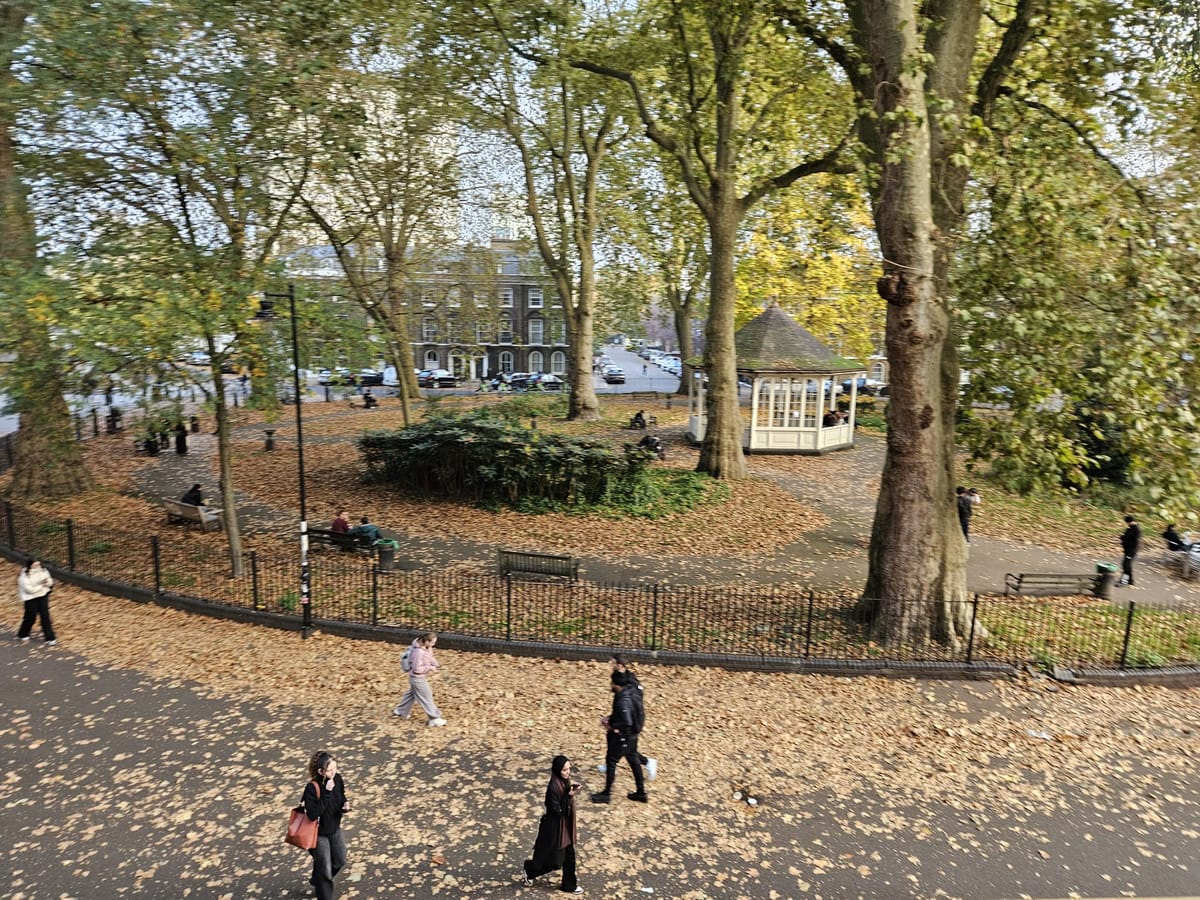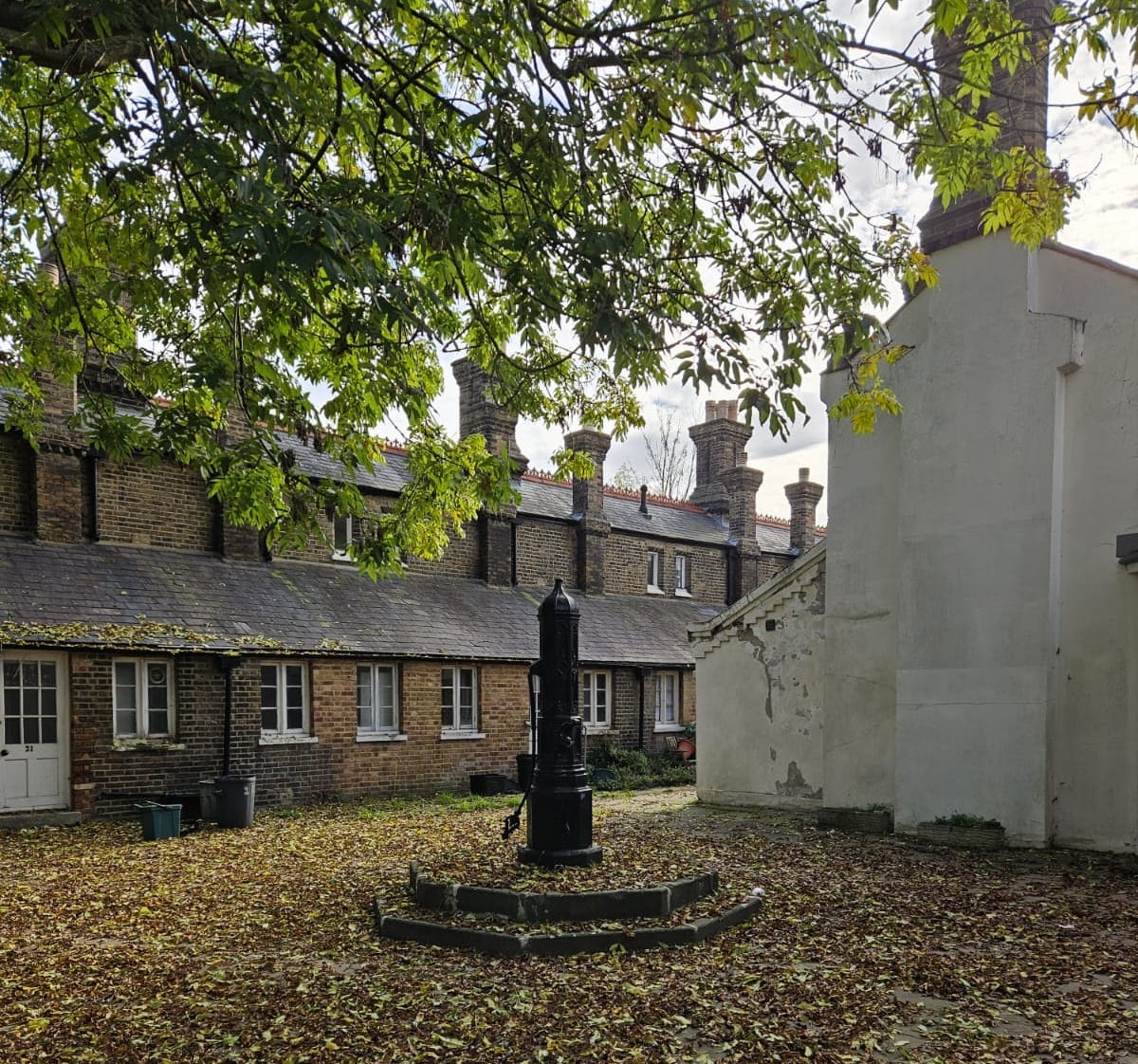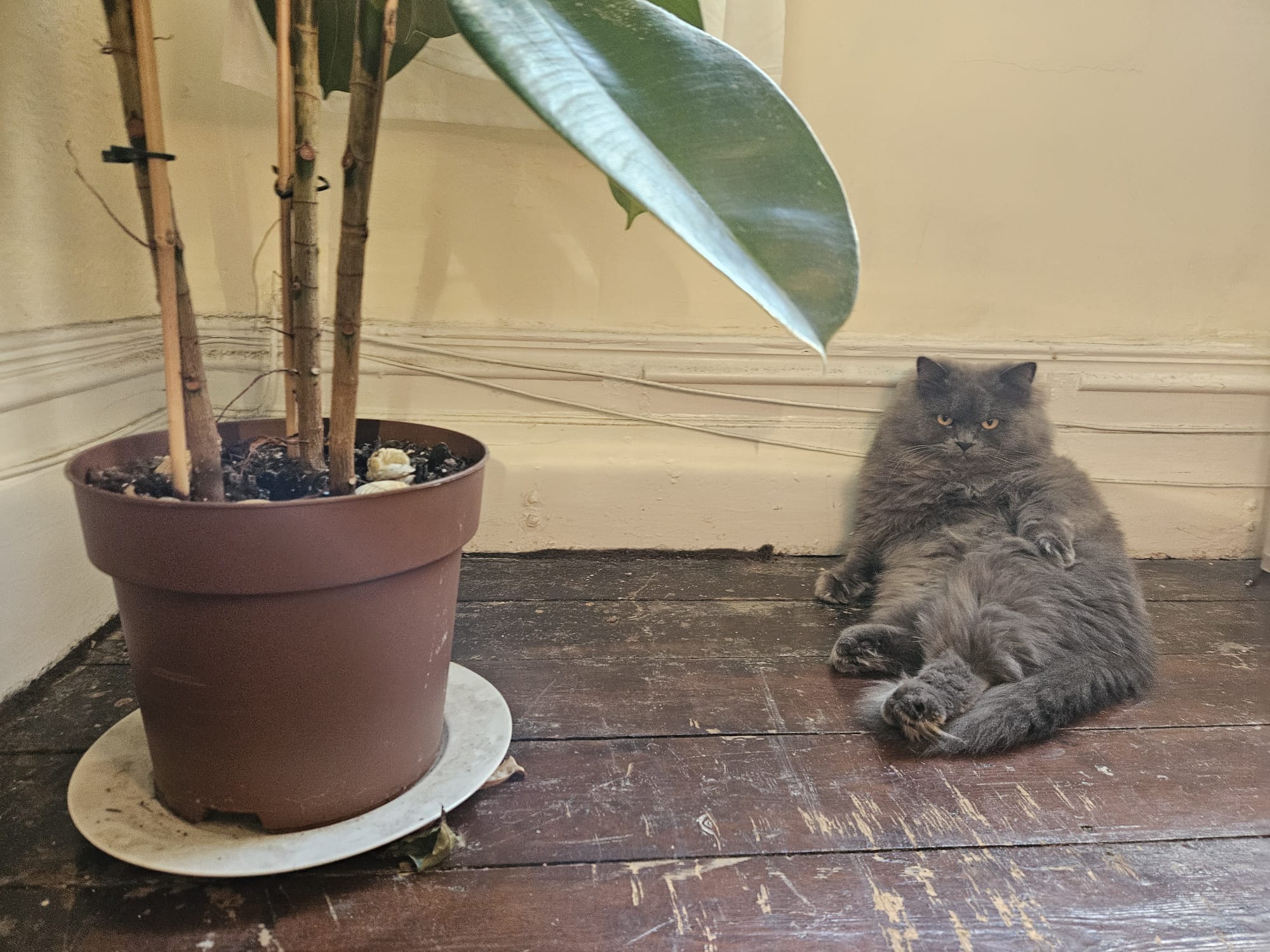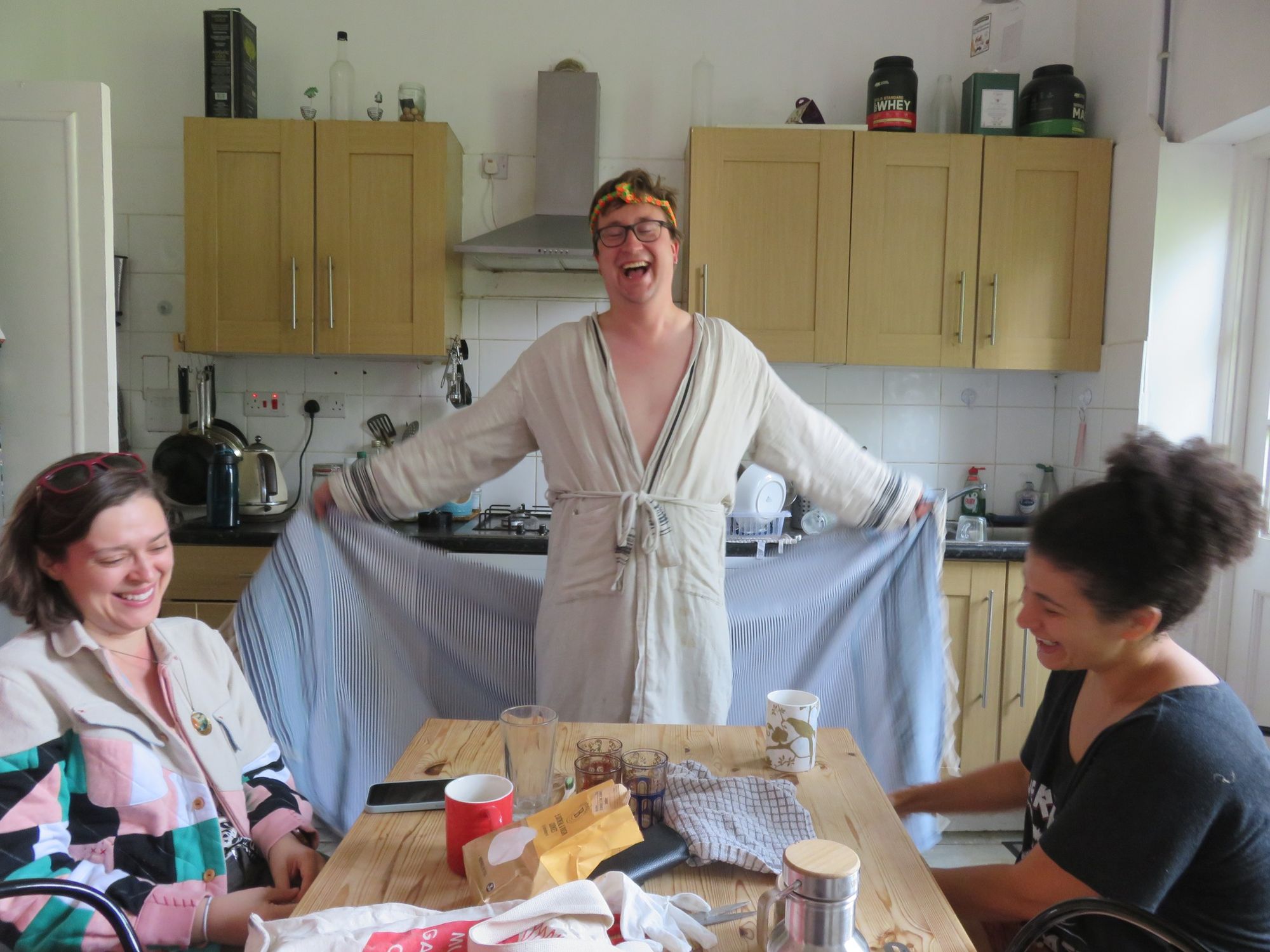What law school is like

It’s lecture one, day one. Subject: Land Law. Professor crashes in, throws a leather messenger bag on the table, heads to the blackboard without looking at us, writes an email address for Cambridge rather than City University. “This is the only email address I respond to,” he says.
Later: “The Daily Mail would have you believe that “squatters” are junkies or criminals. Don’t use the word “squatter” on an exam; it is pejorative and conjures up that sort of image, and it is inaccurate. So let me be clear. The vast majority of adverse possessors are white, middle class, property-owning people seizing land from their neighbors or from the local authority. This is real. I also did this. I’m not kidding. I seized an abandoned shed from my neighbor and extended my fence around it.”
Later: “I was on a case recently where a farmer asked me what to do about a fence that someone had built on his land. Can anyone tell me what I advised him to do?"
"Send him a letter?"
"Not quite."
“Take his fence down?"
“Almost! Someone else?"
“Drive his tractor through the fence?"
“That’s it!"
At the break in our inaugural EU Law class, a weedy young man with an impossibly old-fashioned name (Aloyisius) stands up to encourage us to sign up for the EU Mooting competition (aka, mock trial, where you debate something of no consequyence, i.e., a “moot point.”) He says that you do need to speak French to do it, since sometimes the judges question you in French. He makes an apologetic aside in French, saying that his French is poor, but functional. A guy raises his hand. “How good does our French actually need to be? It seems like yours is mediocre. Is that enough?”
Aloysius’s back stiffens. He replies, at length, in French.
When I first got the timetable, the schedule seemed suspiciously light. Mondays off? Only one lecture on Tuesday and Friday? I had to ask a lot of professors, students, etc what we were actually expected to do. “Make sure you go to the lectures,” they said, “It’ll set you up for tutorials.” I was baffled.
The British university as an institution is a lot more open-ended than college in the US. You’re given an impossibly long reading list at the start of the year for each class and very little direction. Your entire grade is determined by a series of intense written exams at the end of the year. There is optional coursework to get written feedback (which I do where possible.) The lectures set out the broad principles of each topic, the reading provides supplemental material.
“Tutorials” are where you apply it. Every two weeks in each subject, we have a small seminar-style class with specific directed problem questions and case reports to read. Each of these, I have learned, take about four hours of reading to prepare for. We have eight subjects. Here is where the millstone meets the wheat. 19 hours of class + 4 hours of tutorial + at least 20 hours of reading + however many evenings you can spare going to career events, applying for work experience, networking, mooting. It feels a bit like standing in front of a firehose.

The subjects are:
Foundations. Judicial hierarchy, common law and precedent, who pays for what legal services and how. Literally what law is and how the legal system works here in England and Wales. (It’s different in Scotland, which evolved from the Roman civil law system. As with most forms of education in the UK, apparently, Northern Ireland is not mentioned at all.)
Tort. personal injury, defamation, negligence, nuisance, any “wrong” directed against someone else. This would be my brother Eliot’s favorite class, as train crashes feature prominently in the case law.
Illustrative quote from class: “The railway revolution brought the middle and upper classes in full contact with the dangers and horrors of the industrial era, and thus, a lot of tort law developed. The first class compartments were at the end of the train, so if the boiler exploded at the front, it wouldn’t be them who died.”
Contract. what’s a deal, why do we enforce them, what do we do when things go wrong in business? This is the online course (though the tutorials are in person) so I normally pop on my headphones to listen to the lectures, and take a long walk. There are a lot of cases about horse trading. The most technical of the classes, and the one I’m worst at. I go into tutorial thinking I’m ready and then discover I’m completely wrong. I recently had a crack at a problem question* – feel free to have a crack at it and tell me what you think. There’s no right answer.
Land Law. The law of “Royal property,” aka Real Property, aka realty. Centuries-old cases now mostly abolished by statute. This isn't just buying and selling – it's asking questions about how rights of use become attached to land itself. The cases are bonkers: a guy hiding all his wife's possessions and selling the house while she's giving birth in the hospital, a guy with an identical name fraudulently stealing someone's house, a mortgage scam, hippies occupying the woods to block an airport from extending a runway.
Equity & Trusts. Wills, charities, insolvency. The legal system some time in the distant middle ages recognized that law didn’t always produce fair results, and so established a flexible and parallel legal system called “equity”, where decisions are made upon what seems equitable rather than what the rules require a judge to do. This became, somehow, the mechanism by which wealthy people construct byztantine tax avoidance schemes. It's also how we own houses and often, stocks and shares. Baffling.
EU Law. Although we are merely a small, isolated island in the middle of the Atlantic and have nothing to do with Europe, we do still do business with Europe occasionally, and thus any lawyer here needs to have understanding of how it works. And it is truly an unusual creature – it’s like “what if we built a new constitution on tariff disputes about imported meats?”
Crime. You know what this is, so here is a fact you likely didn’t know. In the US we have the plea bargain system, where some 90% of crimes don’t actually go to trial, because a harried public defender and prosecutor work out some deal for the defendant in exchange for a guilty plea. The Brits like to sneer at the manifest unfairness of that system. Which, yes, it is very unfair, but consider: in the UK, 90% of crimes are dealt with in magistrates’ courts, where the judges are, no joke, volunteers with no particular legal training. There are no juries in these courts. They can imprison people for up to a year.
Public law. In America we might call this something like “constitutional law.” It describes how the state and its bodies interact with the public. Human rights, state power, interpreting statute, the interactions between executive, judicial, and legislative. Probably my favorite course. We have surveyed a number of constitutional crises across the commonwealth, examining the legal aspects of apartheid, the expansion of state power in WWII, the free expression of pamphleteers in Victorian England.
It is very disorienting being back at school. Everyone else is also figuring things out going through this intense experience together, so it’s by no means isolating, and I’ve met some really excellent people. Most of the students have had whole lives before switching to law (there are three other ex-journalists in the course, all lamenting the collapse of the industry! yikes!) and going to university feels like reverting to a pre-career adolesence. We are all adults and professionals, but also, we are all complete beginners. We gossip about professors and other students between classes and complain about the vagaries and opacity of our new chosen profession. We swap tips about surviving the coursework and how to narrow down the reading to essentials, or insights into what various professors seem to want.
The quality of teaching is excellent – nearly everyone in every course is a leading scholar in their field, and the majority of them are practicing lawyers. It's a mix of history and philosophy and practical problem solving. I get to argue with absolutely everyone all the time about everything. I am really, really, really enjoying it.

No food news this week, except: I went to the world culture fair at school to try and mooch free snacks and tea. The Saudis had the best-funded stall (not surprising) and I got a whole package of dates. The best find was a Nepalese ayurvedic digestive tablet. The lady at the stand said "let me take your picture when you try it!" because she knew what was coming. It looked like candy, crumbled like a SweetTart, and was one of the top three worst things I’ve ever put in my mouth. Eggy, spicy, intensely salty and sour. Only slightly less bad than the kymmyz in Kyrgyzstan (fermented mare’s milk.)

*Problem question. Feel free to leave your take in the comments.
On 1 September 2021 Griselda concluded a contract with XYZ Assicurazione for the insurance of her unfinished holiday house in Italy. The insurance policy became due for renewal a year later.
On 15 September 2022 Griselda remembered that she needed to renew the policy, and realised that a renewal notice stating the new premium would have been returned undelivered from the house (it has no letter box). She therefore wrote a cheque for the amount of the original premium plus a small increase, and posted it to XYZ with a note saying “I accept your offer of a renewed policy on the same terms as before”. XYZ received the letter on 25 September, noticed that the cheque was not for the precise amount stated in the renewal notice, and did nothing further.
When Griselda’s builder next visited the house in October, he reported that a water leak had caused substantial damage to the floors. He estimated that the leak had begun during the second half of September.
Griselda claimed for the damage. XYZ denies liability. Advise Griselda as to her rights if any against XYZ.

